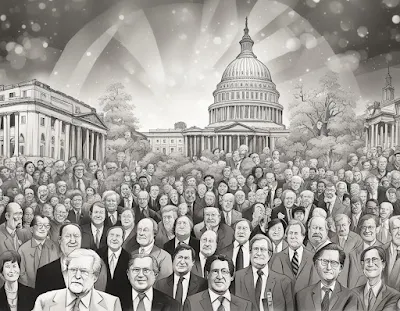The Impact of Political Cartoons
In the world of political discourse, the written word and the spoken speech have long been lauded for their influence and insight. Yet, there's another medium that cuts through the verbosity with a sharpness that is both profound and poignant: the political cartoon. These artistic expressions pack a punch, encapsulating complex political situations with a single image and, often, a splash of humor.
The Essence of Political Cartoons:
Political cartoons are an essential facet of political commentary, using satire and caricature to expose truths and provoke thought. They often focus on current political events, trends, and personalities, delivering criticism in a way that is accessible and entertaining. Through symbolism, exaggeration, and analogy, these drawings highlight the underlying narratives that shape public discourse.
The Power of Visual Satire:
The potency of political cartoons comes from their immediate impact. A well-crafted cartoon can make a complex issue understandable, often transcending language barriers. This immediacy is especially crucial in our fast-paced digital world, where images can be shared and understood globally in a matter of seconds.
Cartoons as a Tool for Social Change:
Throughout history, political cartoons have been more than just commentary; they have sparked conversation and change. They can challenge power structures, question policies, and represent the sentiment of the people in ways that can be both unifying and divisive. In times of censorship, cartoons have surreptitiously conveyed what words could not, becoming symbols of resistance and opinion.
The Challenges Faced by Cartoonists:
Despite their importance, political cartoonists often operate under risk, especially in regimes with restricted freedom of speech. The very nature of satire can evoke strong reactions; cartoonists have faced legal charges, threats, and violence for their work. It’s a testament to the power vested in their art—the ability to influence public sentiment and question authority is both their gift and their curse.
The Digital Landscape and Political Cartoons
The digital age has transformed the way political cartoons are created and consumed. Social media platforms enable cartoons to spread swiftly, reaching wider audiences than ever before. However, the digital realm also opens cartoonists to immediate public scrutiny and, in some cases, a level of virality that can spin out of the creator's control.
In Conclusion:
Political cartoons are a vital part of our democratic process. They serve as a mirror to society, reflecting the absurdities, the injustices, and the hope within the human condition. The power of a single drawing a simple collection of lines and words—can change minds and, occasionally, even the course of history. As we continue to navigate the political landscape, these graphic satires remind us that freedom of expression is a cornerstone of any healthy society. Cartoonists, with their pens and wit, are not just observers of political life but active participants in the shaping of our collective consciousness. And so, the pen, mightier than the sword, scribbles on, etching truth onto the canvas of public opinion, one caricature at a time.

